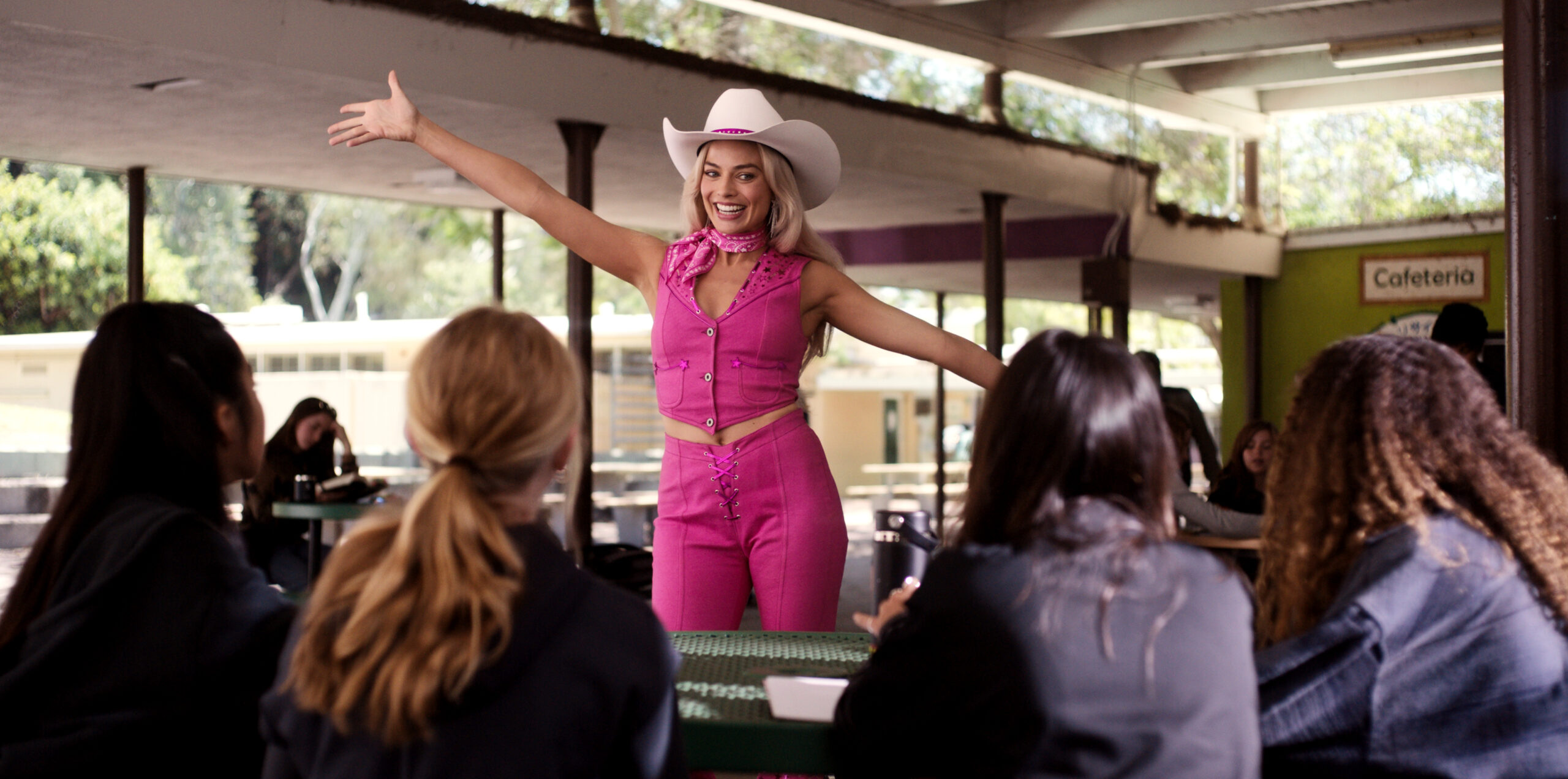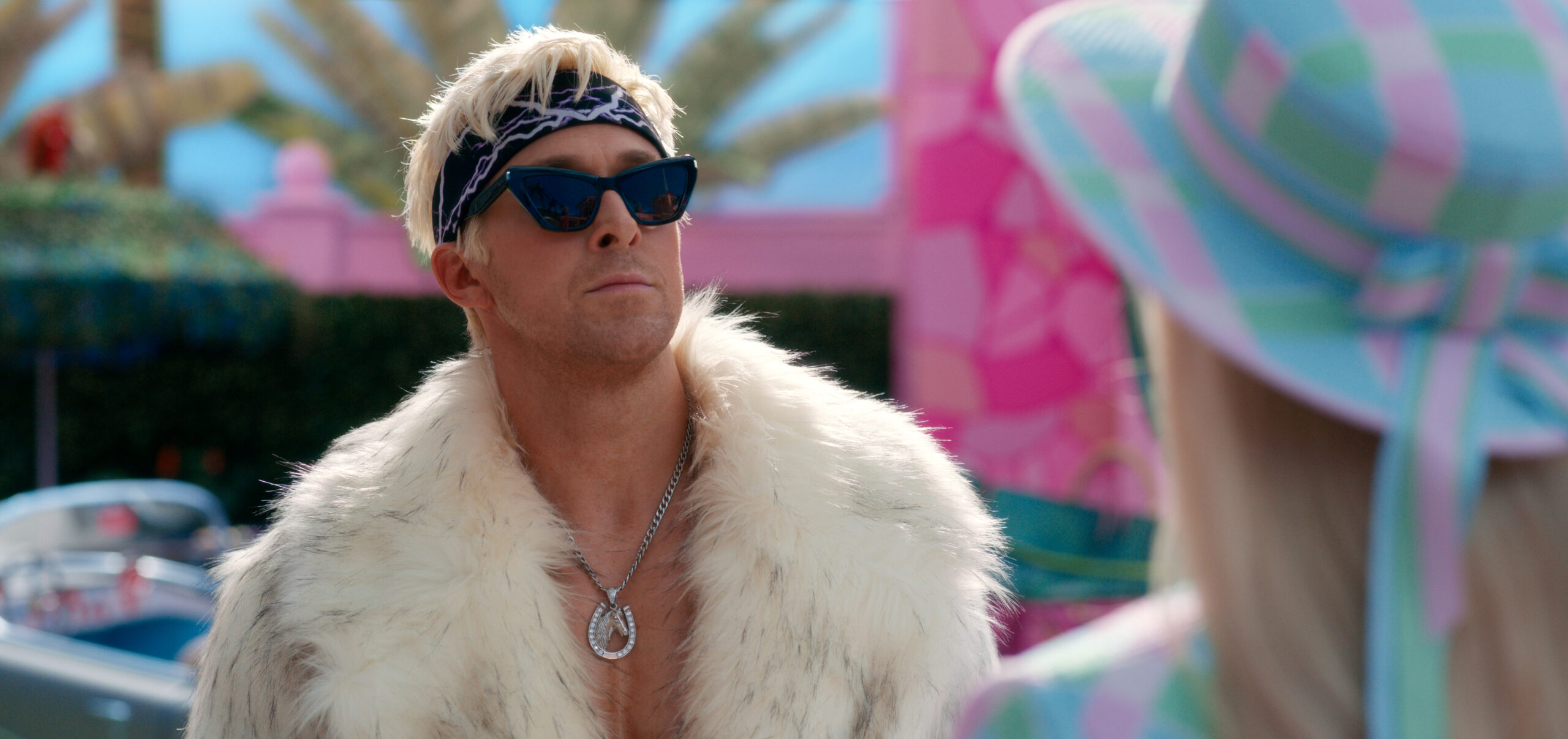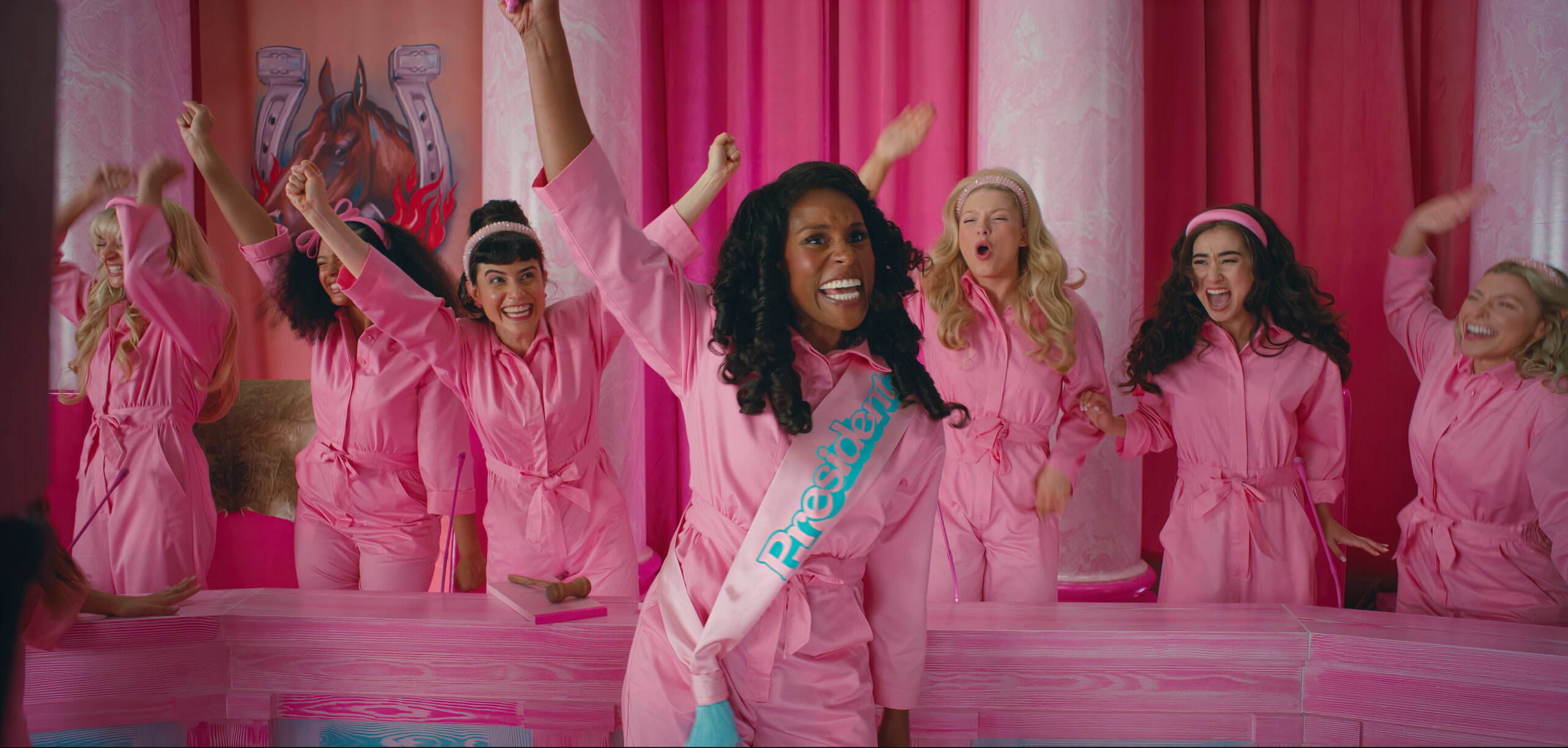Written and directed by: Greta Gerwig
Synopsis: To live in Barbie Land is to be a perfect being in a perfect place. Unless you have a full-on existential crisis. Or you’re a Ken.
Starring: Margot Robbie, Ryan Gosling, America Ferrera, Ariana Greenblatt, Will Ferrell, Simu Liu, Michael Cera, Issa Rae, Scott Evans, Ncuti Gatwa, Kinglsey Ben-Adir, and main Barbies Ana Cruz, Emma Mackey, Hari Nef, Alexandra Shipp, Rhea Perlman
If you haven’t seen Barbie yet, this review has light spoilers.
Monique’s review:
There’s been a lot said about Barbie in the past few weeks since it’s been in theaters. The latest headlines include Barbie becoming Warner Bros. biggest global hit ever, and Greta Gerwig becoming the first female director to have a film make a billion dollars. There’s also been a lot of chatter from the manosphere about how the film, in their view, talks down to men and positions men as the enemy (far from the truth).
So what did I think of it? I will admit that perhaps my view is a bit biased since, in all honesty, I am a Barbie collector and I saw the film on my birthday, on which I took pictures of my sister and I dressed for the occasion.
View this post on Instagram
View this post on Instagram
But I think I’m being truthful when I say that Barbie might not live up to all the hype it’s been given, but it is quite stellar on its own merits. The film goes beyond what you might expect for a product placement movie and becomes a story all about the existential crises women and men face when it comes to figuring out who they are and what their roles should be in life.
For Barbie (Margot Robbie, who also served as executive producer), that crisis comes in the form of realizing that Barbie as an identity might not have liberated women from the shackles of patriarchy like she and her fellow Barbies thought for the past few decades. For Ken (Ryan Gosling), that crisis comes in the form of realizing that patriarchy could help him feel like less of an accessory and more of his own person. Of course, that belief turns our beloved Ken and the other Kens into toxic dudebros, meaning Barbie and her female compatriots must band together save BarbieLand and end the influx of patriarchy in their idyllic female-run world.

I’ve always been a fan of Robbie ever since she first graced US television screens on Pan-Am (which I reviewed for the first iteration of my site, Moniqueblog). Even on that show, she had a sense of whimsy and and innate understanding of the power of camp in an otherwise serious performance. She has translated those sensiblities into iconic turns as Harley Quinn, Tonya Harding, and now Barbie. Not only does Robbie aesthethically fit what audiences want Barbie to look like, but she also brings smarts and fun to what could have been a role that could be flat in lesser hands. She also does a great job at finding the heart of what makes Barbie a beloved icon–her ability to morph and transform with the times in order to stay on the cusp of what women are going through in their daily lives.
While people came for Robbie, everyone has certainly stayed for Gosling, someone people thought was miscast when the news of him playing Ken first broke. Gosling proved all of us wrong, bringing us the most fleshed-out Ken we’ve ever seen. This Ken isn’t just satisfied with being Barbie’s built-in boyfriend. He wants to be something more. What I found fascinating was how Ken’s desire for autonomy mimics women’s everyday desire to be taken seriously for who they are, not for how they look or who they are attached to romantically. Ken should be a character to help men relate more to women’s issues, not propel men to believe the exact opposite of what the character’s story is meant to teach. Men are both critiqued and empathized with in Barbie; if someone took only negative lessons away from the film, then they were going in with an agenda in the first place.

Another standout is America Ferrera, who plays Gloria, an overworked employee at Mattel (yes, Mattel is a central character of sorts in this movie) who becomes an integral part of Barbie’s life. Ferrera’s speech to Barbie about the hoops women must jump through just to be taken seriously is one that many women have raved about online, and indeed, the speech does point out the vast hypocrisies women must deal with when trying to be accepted in a patriarchal society.
The film hits a lot of its big swings, such as the now-iconic “Kenergy” number and its focus on handmade, practical sets. Gerwig’s inspirations from classic musicals of the ’30s, ’40s and ’50s can be seen on display throughout the film. Fans also wouldn’t be remiss if they felt the film also had nods to ’90s comedies that went all-in with character specificity and camp, like Zoolander in particular (a film that also starred Will Ferrell, who played the head of Mattel in Barbie). Michael Cera, who plays Allan, Simu Liu, who plays the Ken adversary to Gosling’s Ken, and Issa Rae as President Barbie also give fun performances, as do fellow Kens Scott Evans, Ncuti Gatwa, Kinglsey Ben-Adir, and main Barbies Ana Cruz, Emma Mackey, Hari Nef and Alexandra Shipp. Chief among the fun supporting performances are Kate McKinnon as the mystical Weird Barbie.

Some of the swings don’t land as much, such as some of the tones not meshing as much as they could with each other, leading the film to feel like it has some minor whiplash. Also, some characters could be fleshed out more, such as Gloria’s stereotypically angsty daughter Sasha (Ariana Greenblatt) and some of the Barbies themselves (Emerald Fennell’s Midge, for example, seems like she should have had some lines, and Nicola Coughlan’s Barbie was so quickly featured that I forgot she was in the movie). There’s also a chance that the movie’s big reveal also feels a little rushed regarding its setup.
However, the film’s boldness and, frankly, weirdness, allows Barbie to become a successful sum of its parts. It’s a film that clearly has something to say and doesn’t want audiences to get caught up in the fact that it’s a doll at the center of it. Instead, Gerwig uses the draw of Barbie the character/product as a Trojan horse to tell a universal story about the simultaneous joy and tragedy of being a woman in a world ruled by men. What Barbie wishes for all of its viewers, regardless of gender, that we could one day live in a world where people are treated as equals and judged for their character, not for their body parts or sexual orientation.
